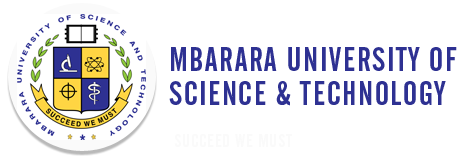THEME: “Collaborative Transformational Research for Sustainable Community Development”
DATE: November 22nd 2019
The Directorate of Research and Graduate Training (DRGT) is proud to announce that it will be hosting the 15th MUST Annual Research Dissemination Conference to be held on 22nd November, 2019 under the theme: “Collaborative Transformational Research for Sustainable Community Development”. This year’s conference shall be preceded by a one day internal PhD Symposium on 21st November, 2019 and an exhibition on the same day of the conference.
The conference aim is to provide researchers and professionals a platform for disseminating their findings, exchanging contemporary knowledge and building partnerships and collaborations to advance research, thereby contributing to innovation and community transformation. The conference will also increase delegates’ awareness of the importance of research and innovations and other respective disciplines to sustainable development. The research and poster presentation sessions will include Medicine, Basic and Applied Sciences, Engineering, Computing, Allied Health Sciences, Economics, Business and Management; and Humanities.
Sub-Themes
- Collaborative Innovations for health, service delivery and reduction of disease burden
- Transformational Initiatives in herbal medicine and natural product Research & Development
- Community engagement for water sanitation, hygiene and nutrition for sustainable health solutions
- Science and technological innovations in learning and service delivery
- Applied solutions in energy, health and industrial sectors
- Research and innovation in business management, incubation and entrepreneurship
- Transformative innovation in ethics, governance, leadership and policy for sustainable development
- Sustainable agricultural practices and value addition for food security
- Natural resources, physical planning and disaster management for climate change mitigation and environmental conservation
Conference objectives
- To present the positioning of research and innovation in the quest for community transformation.
- To interrogate research and innovation approaches applicable for sustainable development.
- To explore current practices in research and innovation and their influence to sustainable community development.
Conference Justification
Research & Innovation are jointly related and cross cutting activities in all sectors of the economy. For universities, research and innovation are expected to result in production of high human resource capital that offers solutions to existing community needs, spur economic growth and resulting into improved resource management and use. In this regard, for the conference purpose, Research is the scientific inquiry into the unknown and where outcomes are not necessarily defined and unsure. Similarly, Innovation means the application of Research (specifically the commercial application which may be for personal profit or the wider good for community).
While Universities are recognized centers of Research excellence, they are not great Innovators. Innovation comes from the private sector actors who understand the commercial opportunity of research. This is the basis of the choice of conference theme: “Collaborative Transformational Research for Sustainable Community Development”. We argue that it is the private sector that creates the wealth of a nation through the commercial exploitation of research. This conference argues for Research and Innovation to reveal the interplay between Universities, Governments and the Private Sector actors for sustainable development.
In line with the MUST vision: “To be a Centre of Academic and Professional Excellence in Science and Technology”; the conference furthers the strategic positioning of Researchers and Innovators in promoting community transformation and sustainable development.
Conference Expected Outcome
The expected outcome of the conference will be to provide leadership to concerned institutions in developing a general policy to drive the research and innovation agenda. The attainment of this outcome will result in enhanced universities’ collaborative actions with the private sector actors through the following specific activities:
- Initiating the process that provides young University postgraduate students into training guidelines, policies and procedures for research, the zeal to get involved, share and disseminate research and their contribution to transforming community practices.
- Creating awareness on the general needs, existing research and innovation opportunities, potential activities and challenges that addresses the social-economic agenda for sustainable development.
- Developing a sense of teamwork, building collaborations and networks in meeting the universal mandate in research and innovations.
- Stimulating enthusiasm to write grants, conduct research with a purpose of addressing societal needs.
- Encouraging individuals and faculties to engage in collaborative and transformational research in addressing societal needs.
- Equipping faculties and students with targeted skills, training and exposure by organizing workshops and participation in research conference.
Submission Guidelines
Abstract:
- Abstracts not exceeding 300 words in MS word document (submit soft copy).
- Provide authors’ first name followed by last name, institutional affiliation/addresses, email address and phone number. Corresponding author must be indicated. Presenting author’s names should be bolded.
- Abstract should have a title and should be written as one paragraph including title, problem, objective, summary of methods, results obtained, conclusion and major recommendation from the research done
- Title should be short and clear (not more than 20 words)
- Abstract should have key words (not more than 5) in alphabetical order
- Abstracts should be submitted to the organizing conference chair.
- Format: Times New Roman, font size 12 with 1.5 spacing.
Full paper:
- The full paper should include: Authors (as per abstract guideline), title, abstract, introduction, problem, methods, results, discussion, conclusions and recommendations (main outcome measures) between 3,000 and 8,000 words.
Important Dates
| Requirements: | Dates |
| Call for papers: | 27th September 2019 |
| Submission of Abstracts: | 27th September 2019 |
| Deadline for Abstract Submission: | 31st October 2019 |
For more information, please contact
- Prof Amon Agaba C/man 15th ARDC aagaba@must.ac.ug +256 772 095118
- Penlope Yaguma pyaguma@must.ac.ug +256 779 427198
- Samuel Mwesigwa sam.mwes@must.ac.ug +256 393 224625

